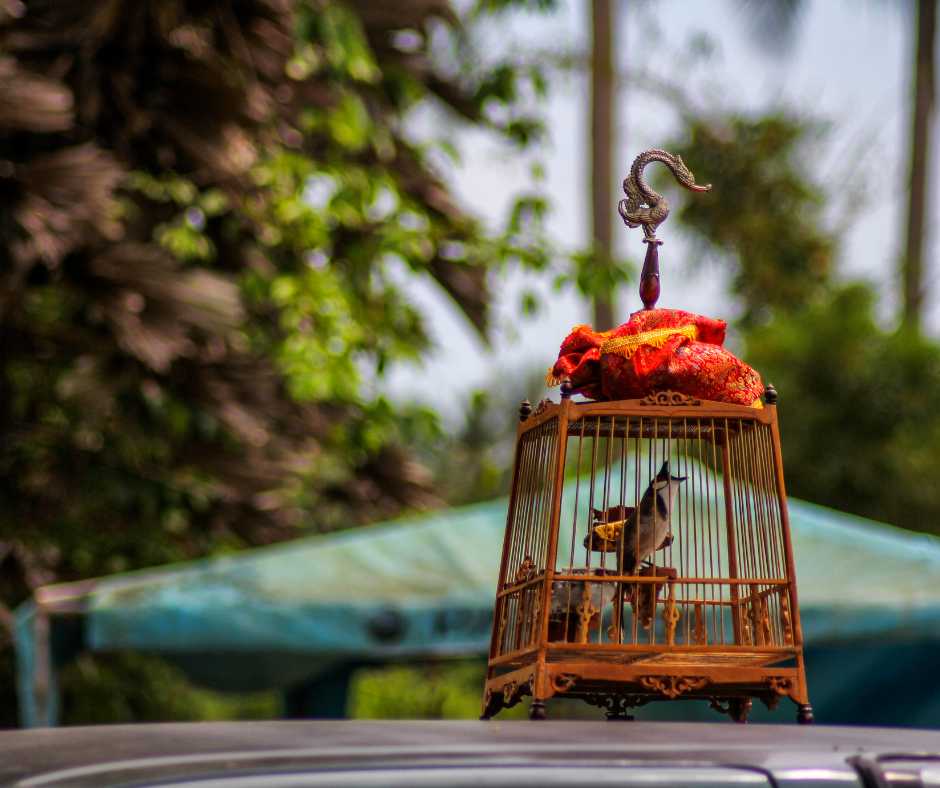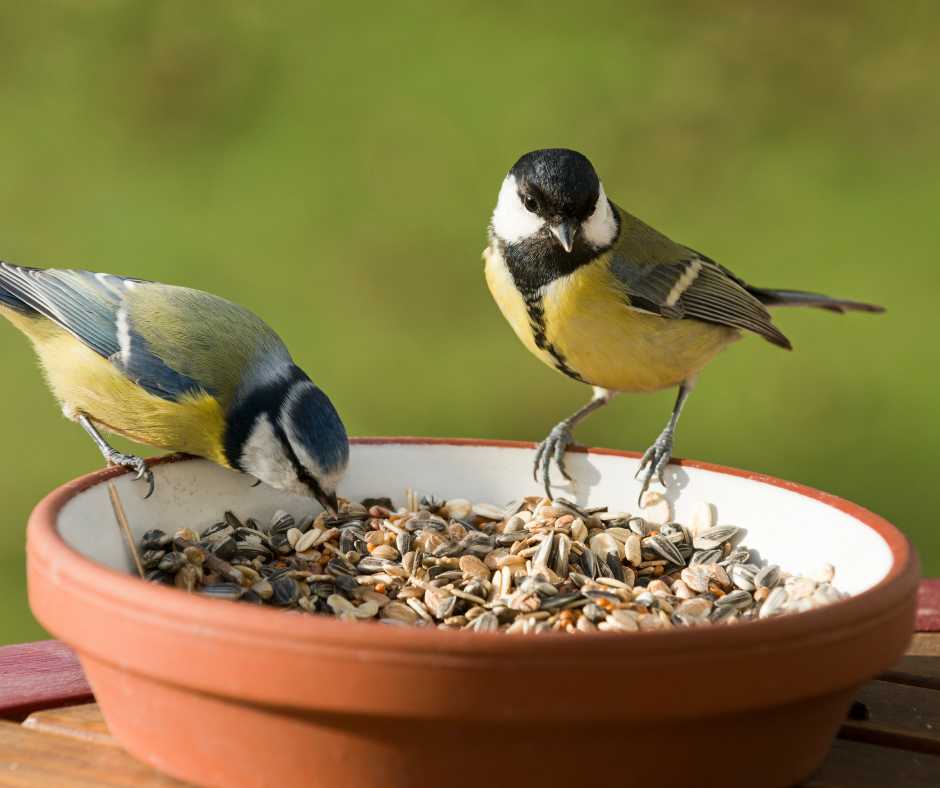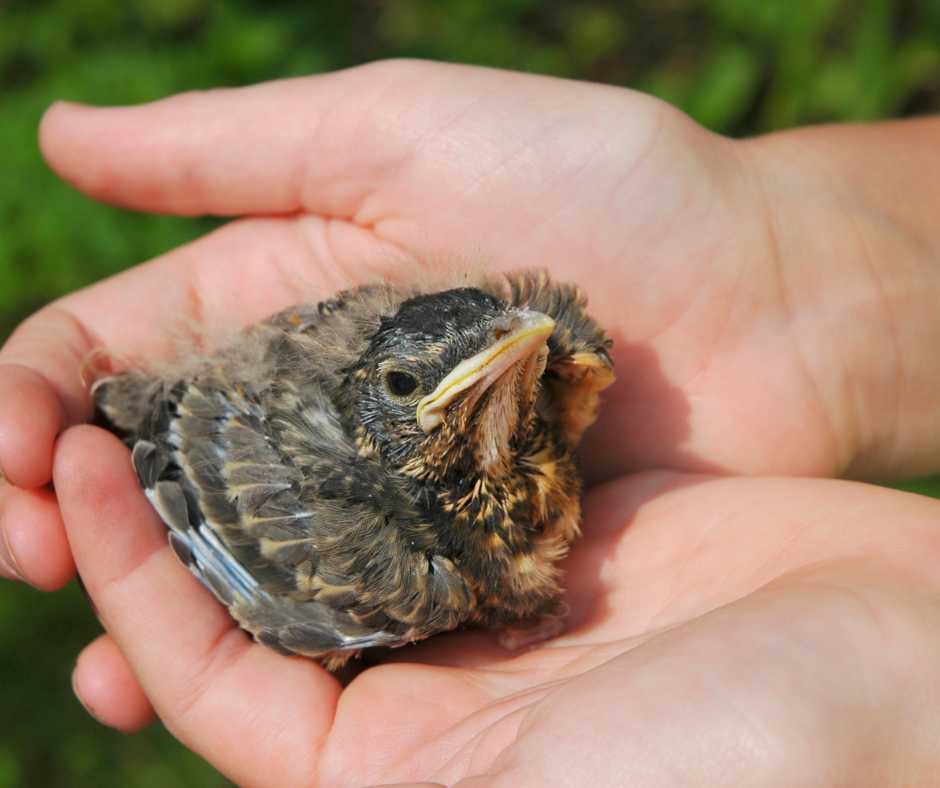Did you know that birds, like humans, need their living space to reflect their lifestyle and personality for ultimate happiness and health? SettingThat’s up your bird’s new home goes beyond selecting a cage; it’s about crafting a haven where they can thrive. But here’s a twist: how do you ensure their abode ticks all the boxes for comfort, safety, and stimulation?
This blog explores the essentials of bird care, focusing especially on creating the perfect living environment for your feathered friends. From choosing the right cage that ensures safety and comfort to accessorizing it with the must-haves for their well-being, we’ve got you covered.
Expect practical tips on selecting bird cages, incorporating enriching accessories, and maintaining a balanced diet that mirrors the vibrancy of your bird’s personality. Plus, insights into the daily essentials that keep them chirping with joy. Join us as we navigate the ins and outs of bird care, ensuring your winged companions lead a healthy, joyful life.
Setting Up Your Bird’s New Home
Imagine your bird’s cage as a mini-palace, where every detail contributes to their happiness and health. Creating this sanctuary involves more than picking a box with bars; it’s about ensuring a space where your feathered friend can spread their wings literally and metaphorically. Let’s dive into how to craft the perfect abode for your bird.
Choosing the Right Cage for Comfort and Safety
Size does matter, especially when it comes to your bird’s home. A spacious cage is not a luxury but a necessity. Their living room, dining area, and playground are all in one. So, think big. How big? The American Veterinary Medical Association suggests the cage width should be at least twice your bird’s wingspan.
This allows them room to move, play, and exercise without restriction. The American Veterinary Medical Association offers some solid guidelines on selecting the right cage, emphasizing the importance of space for your bird’s physical and mental well-being.
But it’s not about dimensions. The type of cage matters, too. Rectangular cages trump round ones because they offer corners for your bird to feel secure and have more usable space.
The bars should be the right size to prevent escapes or, worse, injuries. And let’s talk doors for a second—ones that slide up can spell trouble with crafty birds. Your best bet is a door that swings open, secured with a bird-proof latch.
Essential Cage Accessories for Your Bird’s Well-being
Now that we’ve sorted the castle, it’s time to furnish it. A cage without the right accessories is like a castle without comfort—a lonely place. Your bird needs perches, but not any sticks will do. They need variety; different sizes and textures mimic the natural environment, keeping their feet healthy and their minds engaged. Then there’s the matter of toys. Birds are intelligent creatures.
They crave stimulation, puzzles, and challenges. Toys can provide this, along with exercise and fun. Check out The Spruce Pets for inspiration on transforming your bird’s cage into an engaging habitat.
Food and water dishes are the next big thing. They should be easily accessible but placed strategically to avoid contamination (because no one likes poopy meals, right?). And while we’re on the subject of food, let’s remember that variety is the spice of life. Offering a range of foods caters to their nutritional needs and keeps mealtime exciting.

Daily Bird Care Essentials
Caring for a bird is like being a chef in a high-end restaurant where every dish (or, in this case, every meal) needs to be top-notch. Your feathered friend doesn’t want any seeds; they’re after a daily gourmet meal. Let’s break down the daily essentials that keep your bird chirping happily.
Nutrition and Feeding
Crafting the Perfect Diet for Your Bird
Gone are the days when seeds were the go-to bird feed. Today, it’s all about balance. High-quality pellets should comprise most of your bird’s diet, complemented by fruits and veggies. Think of it as preparing a Michelin-star meal for your pet. For top-tier nutrition advice, visit the Association of Avian Veterinarians.
Integrating Fruits and Vegetables
Variety isn’t the spice of life for humans; birds love it, too. Mixing fruits and vegetables into your bird’s diet keeps them keen on mealtime and ensures they get all those essential nutrients. But remember, not all that glitters is gold. Always double-check which foods are safe for your bird’s species. After all, we want excitement at mealtime, not a food scare.
Understanding Your Bird’s Hydration Needs
Let’s talk about H2O. Water is as vital for birds as it is for us, but their needs are more specific. Fresh, clean water must always be available, and it would be good to offer different drinking setups to keep things interesting. Whether it’s a bowl or a bottle, ensure your bird knows where to find their water and how to use it.
Read more: How to Take Care of a Baby Bird

Health and Wellness
Routine Health Checks and Why They Matter
As you have your go-to doctor, your bird needs a reliable avian vet. These check-ups are crucial for nipping any health issues in the bud. The Merck Veterinary Manual is your encyclopedia for a deep dive into common bird health concerns.
How to Care for an Injured Bird: First Aid and Professional Care
Accidents can happen, and knowing what to do can be a game-changer. Immediate, gentle care and a quick consult with your vet can go a long way. It’s about being prepared so your feathered friend has the best chance of a speedy recovery.
Caring for a bird is an art and a science. It’s about mixing the right ingredients—nutrition, hydration, and health care—into a recipe for a happy, healthy bird. And like any good chef will tell you, the secret ingredient is always love.

Special Bird Care Considerations
When your home echoes with the peeps of baby birds or the soft cooing of nesting mates, it’s clear: bird parenting has its unique seasons. Each step, from the fragile first days of a baby bird to the diligent care of eggs, is a journey filled with wonders and responsibilities.
Caring for fledglings and baby birds is like being on baby duty 24/7. They need warmth, gentle feedings, and constant care to flourish. Remember, patience and a soft touch go a long way. For those stepping into bird parenting, learning about these tiny beings’ nutritional needs and proper handling is crucial.
Then there’s the art of nesting. Creating a safe, comfortable space for your bird to lay and care for their eggs involves more than a cozy corner. It’s about providing suitable materials and the perfect environment for this delicate process.
And let’s not forget about environmental enrichment—a key player in your bird’s overall well-being. From toys that challenge their intellect to structures that encourage natural behaviors, enriching your bird’s environment keeps their minds sharp and spirits high.
Seasonal Bird Care Tips
As the world outside your window shifts from spring’s bloom to winter’s chill, your feathered friends’ care needs to be tweaked a bit, too. Keeping them chirping happily all year round means adjusting their care to suit the weather outside. Dive into these tips to keep your bird in tip-top shape through the seasons:
- Spring:
- Start molt preparation with added nutrition to support feather growth.
- Increase bath frequency to help with molting.
- Summer:
- Provide ample shade and ventilation to prevent overheating.
- Offer extra water sources for hydration and play.
- Fall:
- Reduce daylight exposure to mimic natural light changes, supporting their internal clock.
- Introduce enriching indoor activities as outdoor time decreases.
- Winter:
- Ensure their living area is warm enough, away from drafts or cold windows.
- Consider a full-spectrum light to compensate for shorter daylight hours and support their vitamin D needs.
Each season brings unique care tweaks to ensure your bird’s health and happiness. With these adjustments, your bird will flourish, no matter what the weather outside may bring.
Addressing Common Bird Care Challenges
| Challenge | Solution |
| Aggression | Create a calm environment, avoid sudden movements, and spend time daily interacting gently. Consistency and patience are key. |
| Feather Plucking | Enrich the bird’s environment with toys, provide a balanced diet, and ensure they have enough mental and physical activities. Consult a vet to rule out medical causes. |
| Communication Barriers | Pay attention to your bird’s body language and vocalizations. Use positive reinforcement to encourage desired behaviors and sounds. |
Understanding your bird’s behavior is like learning a new language. It’s all about listening, observing, and responding with empathy. With these strategies, navigating the world of bird care becomes a journey of mutual respect and love, ensuring a happy, healthy relationship between you and your feathered friend.
People Also Asked
How often should I clean my bird’s cage?
Clean dishes daily and a full cage weekly to keep your bird’s environment fresh.
Can all birds eat the same fruits and vegetables?
Most can enjoy a variety, but some foods, like avocado, are off-limits. Always verify what’s safe for your bird’s species.
How do I know if my bird is sick?
Watch for changes in behavior or appetite. Early vet visits can catch issues before they escalate.
What’s the best way to socialize my bird?
Gentle handling and playtime build trust. Consistency and patience are key.
Can birds eat pellets instead of seeds?
Yes! Pellets offer a well-rounded diet. Transitioning may take time, but it will promote better health in the long run.
Wrap Up
In our journey through bird care, from setting up the perfect home to tailoring their diet, we’ve laid out everything you need to excel in bird parenting. Caring for a bird enriches your life with joy, color, and song, deepening your special bond with nature.
It’s clear that understanding, patience, and love create a peaceful home for your bird. As you continue this fulfilling path, cherish every moment of learning, loving, and laughter with your bird. Here’s to the rewarding bird ownership experience, bringing years of happiness and mutual respect.

